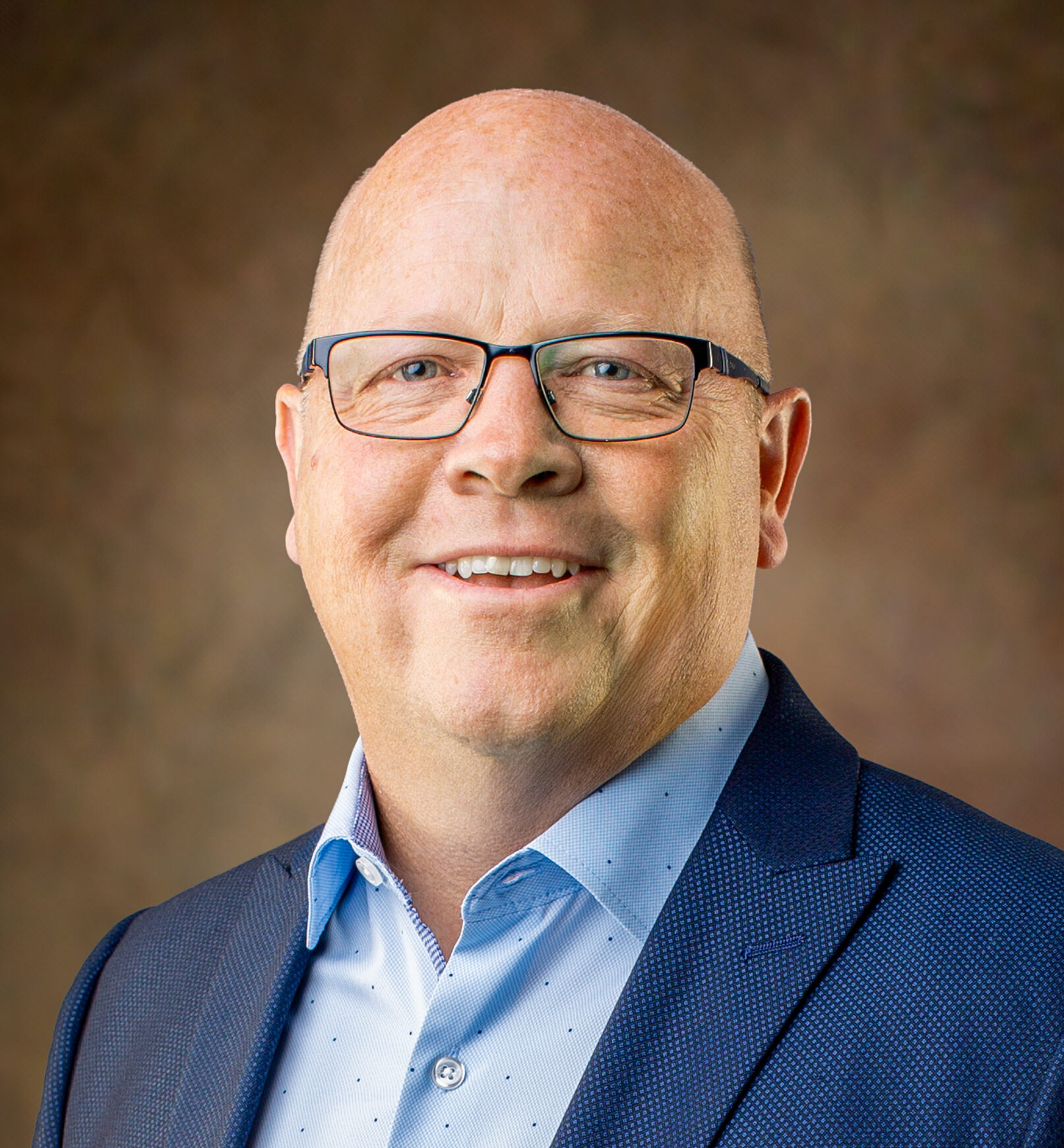President's Perspective
Belonging and Believing
Published
4 years agoon

By Randall A. Bach

Some Christians can identify the day and hour that they consciously and intentionally embraced Jesus Christ as Savior and Lord, when they acknowledged their sinfulness, repented, and received the free gift of salvation. They can mark it on their calendar. I love to hear every one of those transformative testimonies!
Some people are like Barbara, my wife, who grew up in the church continuously exposed to the gospel. She knows without a doubt that she became a fully engaged Christian along the way but cannot point to a specific climactic moment of sudden conversion. She embraced Jesus as her Savior and Lord and lives for Him. Her sins are just as forgiven as the person with the dramatic conversion testimony. Her testimony is just as redemptively and transformatively significant.
These distinct storylines lead to the same conclusion, and the common element unifying the two paths is the person’s active pursuit to become a disciple of the Lord Jesus. A disciple recognizes conversion is the gateway to relationship with Christ and that following Christ’s commands as His disciple is why one can be called by His name, Christian.
Many other people have also been exposed to the gospel. Nonetheless, even though they may have adopted a sense of belonging with a church and may enjoy fellowship with Christ’s followers, they have never acknowledged and repented of their sin. They bask in Christian relationships, appearing to be one of them, but do not have a personal relationship with Jesus. Their connection with Christ is impersonal, second-hand, through other individuals. They are not yet believers. They have yet to be redeemed. They may be searchers. They may be afraid of commitment. They may enjoy benefits without responsibility. They are not Christians. Yet Jesus welcomed these people.
Zacchaeus, a widely scorned tax collector, came to believe only after Jesus befriended him (Luke 19:1-10). Even the disciples needed some time before they began to understand Jesus was truly the Son of God. Jesus was ridiculed for hobnobbing with “sinners” (Matthew 9:11) because the religious groups of the day thought people should first behave before they could belong. But that is not what Jesus espoused. In fact, the New Testament documents that many people actually belonged to the group following Jesus before they believed. Jesus called it a new commandment when He stressed that His followers were to love one another (John 13:34), clearly a bridge to belonging. As illustrated in Jaccie Kenyon’s testimony, it was such love that helped her become a committed believer:
One day I received a call from Debbie Slater, the pastor’s wife at the church our family formerly attended, asking me to babysit. She and her husband, Dan, soon loved me back to attending the church I treasured. They gently and lovingly walked beside me, even in my messed-up life. Click to read Jaccie’s article.
The Connection between Belonging and Believing
- Belonging is a beginning. It was Jesus who declared, “Your love for one another will prove to the world that you are my disciples” (John 13:35, NLT). Our culture and particularly the media have painted Christians as narrow-minded and unloving. Unfortunately, there have been too many instances they can use as evidence. People need to discover that Christians are marked by love and walk joy-filled lives. Christians need to give people a reason to want to belong to God’s family so that they are encouraged to believe. Nothing compares with a sense of belonging to the family of God.
- Believing is imperative. Jesus proclaimed, “You must be born again” (John 3:7). Christianity is more than hanging out with Christians and going to Christian places and events. When an earthquake popped open the doors to the jail cells where Paul and Silas were sentenced and their chains also fell off, their jailer was terrified and asked, “Sirs, what must I do to be saved?” (Acts 16:30). The answer was uncomplicated: “Believe in the Lord Jesus and you will be saved” (verse 31). More than belonging, the jailer needed to believe.
Belonging is an entryway to relationship with people whereas believing develops relationship with God. Belonging is like being in the neighborhood while believing is like coming home. Belonging offers an aroma whereas believing is actually consuming the meal.
Have you taken the step of believing in Jesus Christ as your Savior and Lord? If not, right now confess your belief in Jesus Christ as Savior (Forgiver) and Lord (the One you will serve). Believing in Him brings promise for eternity: “All praise to God, the Father of our Lord Jesus Christ. It is by his great mercy that we have been born again because God raised Jesus Christ from the dead. Now we live with great expectation, and we have a priceless inheritance—an inheritance that is kept in heaven for you, pure and undefiled, beyond the reach of change and decay” (1 Peter 1:3-4).
*Google’s English dictionary, provided by Oxford Languages
President's Perspective
Living A Sent Life: Seeing and Meeting the Needs Around Us
Published
4 months agoon
February 27, 2025
“. . .As the Father has sent me, so I am sending you” (John 20:21 NLT).
In this issue of Message of the Open Bible you will discover some wonderful stories of how God is using everyday people to touch and transform lives and communities. You’ll read how people are opening their eyes and hearts to show and share the love of Jesus by “living sent.”
In my early years of ministry, I heard a phrase from well-known pastor Tommy Barnett that I have never forgotten. He defined ministry simply yet profoundly: “Ministry is seeing a need and meeting it.”

While this may be a simplistic approach, it has stuck with me, perhaps because it encapsulates much of what we see Jesus doing in His ministry. The scriptures tell us that “Jesus went around doing good and healing all who were oppressed by the devil” (Acts 10:38), and how He came “not to be served but to serve others and to give his life as a ransom for many” (Mark 10:45).
Barnett’s quote also helps us see ministry as more relatable, practical, and attainable for every follower of Christ. It takes away the perception that ministry is something done only by pastors, or “super Christians,” or a few of the chosen. It expresses a biblical understanding of what every person can do to share the love of Christ with others.
Finally, the quote brings ministry outside the walls of the church. Ministry is not confined to a designated place or a specific group of people; it happens both inside and outside of the church.
“We see life-giving, disciple-making, Spirit-empowered churches [and people] . . . who possess a missional mindset, multiplying priority, and a mobilizing commitment.”
This idea of ministry is consistent with our vision for Open Bible: “We see life-giving, disciple-making, Spirit-empowered churches [and people] . . . who possess a missional mindset, multiplying priority, and a mobilizing commitment.” It embraces the same principle of “living sent” that we want to embody in our movement.
At the heart of our vision statement is a core value of being missional – reaching out to those who are disconnected from Christ, multiplying disciples who are growing, and building other disciples to be mobilized to serve and use their gifts both inside and outside the church walls.
I love the local church and have served and led through it for over thirty years. I agree it is the hope of the world. But our goal is not just to go to church but to be the church (as the saying goes). Our goal is to live our lives on mission for the Kingdom.
We tried to prioritize this at Life Church in Concord, California, where my wife Julie and I pastored for many years. We taught our church family to be missionaries in our communities and in the spaces where they had influence.

One of our favorite annual outreaches was called “Summerfest.” This day camp provided a free, full-day and week-long experience for local kids. In an area where dual-income families are working to make ends meet, we provided a place where kids would have a blast, be cared for by dozens of volunteers, and experience God’s love. This simple camp blessed hundreds of families each year. That act of service opened hearts to the Good News.
When we serve others, we reflect the heart of Christ, who came not to be served but to serve and give His life as a ransom for many
Outreach is not only about meeting physical and emotional needs but also addressing spiritual ones. It is about building relationships, creating trust, and opening avenues for people to experience the transformative power of God’s love. When we serve others, we reflect the heart of Christ, who came not to be served but to serve and give His life as a ransom for many.
When we shift our focus from waiting for the next church-led outreach to personally engaging with those around us, we unlock the potential for exponential, “multiplied” kingdom growth.
For me as we planted our church, this looked like making a few very practical investments in our community. My daughters played soccer, so I volunteered to coach (I was the only dad to volunteer, so I got the job). Through that opportunity, I connected with families in our community. One of the soccer dads then asked if I would be interested in playing on his men’s city league softball team. By saying “yes” to his invitation, I was able to connect with even more people in our community, and long story short, that father surrendered his heart to Jesus and was one of the first people to be baptized at our church.
Serving people doesn’t always require a large-scale event or program. Sometimes, it is a simple conversation, a kind gesture, or a heartfelt prayer. As followers of Christ, we have the privilege of being His hands and feet in our own unique spheres of influence. When we shift our focus from waiting for the next church-led outreach to personally engaging with those around us, we unlock the potential for exponential, “multiplied” kingdom growth. One friend at a time, we can share the hope of Christ and watch as lives are transformed for His glory.
Remember these words of Jesus: “Whoever wants to be great must become a servant” (Matt 20:26 MSG). Let us be intentional in our outreach, committed to serving, and faithful in sharing the good news of Jesus Christ.
About the Author

Michael Nortune
Michael Nortune serves as president of Open Bible Churches. He has ministered in the local church faithfully for 35 years. From his start as a janitor and groundskeeper to lead pastor of Life Church in Concord, California, Michael has had the opportunity to gain experience in every capacity within the church throughout his ministry. Not only does he have hands-on experience on the local level, but Michael has also led at the district, regional, and national levels within Open Bible Churches. Michael and his wife Julie currently reside in Colorado and love living near five of their six children and their spouses. They also treasure the time they spend with their other daughter who lives in Alabama with their first (but not the last) grandson!

As we approach another election season, we find ourselves once again in an environment bringing tension, division, and uncertainty to people, including those within the Church. It is during times like this, however, that we as the Church can shine brightly. In the face of debates, advertisements, and news that may stir anxiety, we have a divine opportunity to anchor people to the unchanging hope of Christ.
The apostle Paul instructs us that “our citizenship is in heaven” (Phil. 3:20 NIV), and as followers of Christ, our ultimate allegiance is to God and His kingdom. While politics does have its importance and influence, it is reassuring to know our hope is not based upon human leaders or systems but in the Lord who reigns over all.
In the face of debates, advertisements, and news that may stir anxiety, we have a divine opportunity to anchor people to the unchanging hope of Christ.
There is no question that, as followers of Christ, we should engage in our civic duties with a kingdom-minded perspective and a biblical worldview. We vote, we pray for our leaders, we seek the welfare of our communities (Jer. 29:7), and we engage others with love. And as we do all of this, we hold to the truth that God’s sovereignty transcends the outcomes of elections.
In times that seem unstable or fragile, God’s Word tells us “we are receiving a kingdom that cannot be shaken” (Heb.12:28). We serve an “unshakable kingdom.” Governments change, leaders come and go, and through it all, God’s kingdom remains. It is unshakable, eternal, and built upon His righteousness and justice. No election can alter the reality of God’s sovereignty nor shake the foundation of His authority. It is His church that holds the keys to unlock heaven on earth and bring light to the darkness.
Here is the reality we stand upon: It is God who “controls the course of world events; He removes kings and sets up other kings” (Dan. 2:21 NLT), and “the king’s heart is in the hand of the Lord” (Prov. 21:1 KJV).
Because of this truth, we can embrace Paul’s word to the Philippians: “Don’t worry about anything; instead, pray about everything. Tell God what you need, and thank him for all he has done. Then you will experience God’s peace, which exceeds anything we can understand. His peace will guard your hearts and minds as you live in Christ Jesus” (Phil. 4:6-7 NLT). Based on this passage, if we are a people of prayer who walk in faith, seek God’s wisdom, and are grateful, THEN we know we will experience a peace that goes beyond natural understanding. I am reminded, comforted, and convinced of this truth, and it is an anchor to my soul.
No election can alter the reality of God’s sovereignty nor shake the foundation of His authority.
This November’s election will be followed in December by the celebration of Christ’s birth. What a perfect time to remember that Jesus is Emmanuel – God with us. This name, given to Jesus, is more than just a title; it is a promise that no matter what happens around us, God’s presence is constant and unchanging.
Whether the outcome of the election brings joy or disappointment, whether policies align with your hopes or create concerns, remember Emmanuel – God is with us. He is present in our churches, in our communities, in our families, and in our lives. He is not distant or disconnected; He is personally and actively involved in the lives of His people. Whoever is elected and however people respond – God still sits on the throne, His Kingdom is unshakable, and His plans are unstoppable. GOD IS WITH US.
Some practical steps for consideration:
- Pray for our leaders, regardless of who they are: Pray for their wisdom, discernment, and a spirit of humility.
- Stay united as the body of Christ: Let a heart of unity, love, and the bond of peace be what others see.
- Keep an eternal perspective: Engage in the political process, but keep your eyes fixed on Jesus, the author and finisher of our faith.
- Live out the things that will remain: faith, hope and love.
About the Author

Michael Nortune
Michael Nortune serves as president of Open Bible Churches. He has ministered in the local church faithfully for 35 years. From his start as a janitor and groundskeeper to lead pastor of Life Church in Concord, California, Michael has had the opportunity to gain experience in every capacity within the church throughout his ministry. Not only does he have hands-on experience on the local level, but Michael has also led at the district, regional, and national levels within Open Bible Churches. Michael and his wife Julie currently reside in Colorado and love living near five of their six children and their spouses. They also treasure the time they spend with their other daughter who lives in Alabama with their first (but not the last) grandson!

A medida que nos acercarnos a otra temporada de elecciones, nos encontramos una vez más en un ambiente de tensión, división e incertidumbre entre la gente, incluyendo a los que están dentro de la Iglesia. Sin embargo, es en tiempos como éste cuando nosotros, como Iglesia, debemos brillar con intensidad. Frente a los debates, los anuncios y las noticias que pueden provocar ansiedad, tenemos la oportunidad divina de afianzar a la gente en la esperanza inmutable de Cristo.
El apóstol Pablo nos dice que «nuestra ciudadanía está en los cielos» (Fil. 3:20, RVR1960), y como seguidores de Cristo, nuestra lealtad suprema es a Dios y a Su reino. Aunque la política tiene su importancia e influencia, es alentador saber que nuestra esperanza no se basa en líderes o sistemas humanos, sino en el Señor que reina, sobre todo.
Frente a los debates, los anuncios y las noticias que pueden provocar ansiedad, tenemos la oportunidad divina de afianzar a la gente en la esperanza inmutable de Cristo.
No hay duda de que, como seguidores de Cristo, debemos cumplir con nuestro deber cívico desde la perspectiva del Reino y con una cosmovisión bíblica. Votamos, oramos por nuestros líderes, procuramos el bienestar de nuestras comunidades (Jeremías 29:7) y nos relacionamos con los demás en amor. Y al hacer todo esto, nos aferramos a esta verdad: que la soberanía de Dios trasciende los resultados de las elecciones.
En tiempos que parecen inestables o frágiles, la Palabra de Dios nos dice que «recibimos un reino inconmovible» (Heb.12:28). Servimos a un «Reino Inconmovible». Los gobiernos cambian, los líderes van y vienen, y a pesar de todo, el reino de Dios permanece. Es inconmovible, eterno y está edificado sobre Su justicia y equidad. Ninguna elección puede alterar la realidad de la soberanía de Dios ni sacudir el fundamento de su autoridad. Es Su Iglesia la que tiene las llaves para abrir el cielo en la tierra y para llevar la luz a las tinieblas.
La realidad sobre la que nos apoyamos es la siguiente: Es Dios quien «controla el curso de los sucesos del mundo; él quita reyes y pone otros reyes» (Dan. 2:21, NTV), y «está el corazón del rey en la mano de Jehová» (Prov. 21:1, RVR1960).
A raíz de esta verdad, podemos hacer nuestras las palabras del Apóstol Pablo a los filipenses: «Por nada estéis afanosos, sino sean conocidas vuestras peticiones delante de Dios en toda oración y ruego, con acción de gracias. Y la paz de Dios, que sobrepasa todo entendimiento, guardará vuestros corazones y vuestros pensamientos en Cristo Jesús» (Fil. 4:6-7). Según este pasaje, «si somos un pueblo de oración que camina en la fe, busca la sabiduría de Dios y es agradecido, ENTONCES tenemos la certeza de que experimentaremos una paz que va más allá de la comprensión natural». Este pasaje me recuerda, me consuela y me convence de esta verdad, y es un ancla para mi alma.
Ninguna elección puede alterar la realidad de la soberanía de Dios ni sacudir el fundamento de su autoridad.
En diciembre, tras las elecciones de noviembre, celebraremos el nacimiento de Jesús. Qué momento tan perfecto para recordar que Jesús es Emmanuel: Dios con nosotros. Este nombre, dado a Jesús, es más que un título; es una promesa de que, pase lo que pase a nuestro alrededor, la presencia de Dios es constante e inmutable.
No importa si el resultado de las elecciones nos traiga alegría o decepción, sea que las medidas políticas se alineen o no con nuestras expectativas, o nos generen más preocupación, recuerde Emmanuel: Dios está con nosotros. Está presente en nuestras iglesias, en nuestras comunidades, en nuestras familias y en nuestras vidas. No está distante ni desconectado; Él está involucrado de forma personal y activa en la vida de su pueblo. Cualquiera que sea elegido y comoquiera que la gente responda: Dios sigue sentado en el trono, Su Reino es inconmovible y Sus planes son imparables. DIOS ESTÁ CON NOSOTROS.
Algunas medidas prácticas para tener en cuenta:
- Oremos por nuestros líderes, sin importar quiénes sean: Pidamos para ellos sabiduría, discernimiento y un espíritu de humildad
- Permanezcamos unidos al cuerpo de Cristo: Que un corazón de unidad, amor y el vínculo de la paz sea lo que los demás vean en nosotros.
- Mantengamos una perspectiva eterna: Participemos en el proceso político, pero mantengamos los ojos fijos en Jesús, el autor y consumador de nuestra fe.
- Vivamos conforme a lo que permanecerá: la fe, la esperanza y el amor.
Sobre el Autor

Michael Nortune
Michael Nortune es presidente de las Iglesias de la Biblia Abierta. Ha servido fielmente en la iglesia local durante treinta y cinco años. Desde sus comienzos como conserje y jardinero hasta ser pastor principal de Life Church en Concord, California. Michael ha tenido la oportunidad de adquirir experiencia en todas las funciones dentro de la iglesia a lo largo de su ministerio. No sólo tiene experiencia práctica a nivel local, sino que también ha liderado a nivel distrital, regional y nacional dentro de las Iglesias de la Biblia Abierta.








